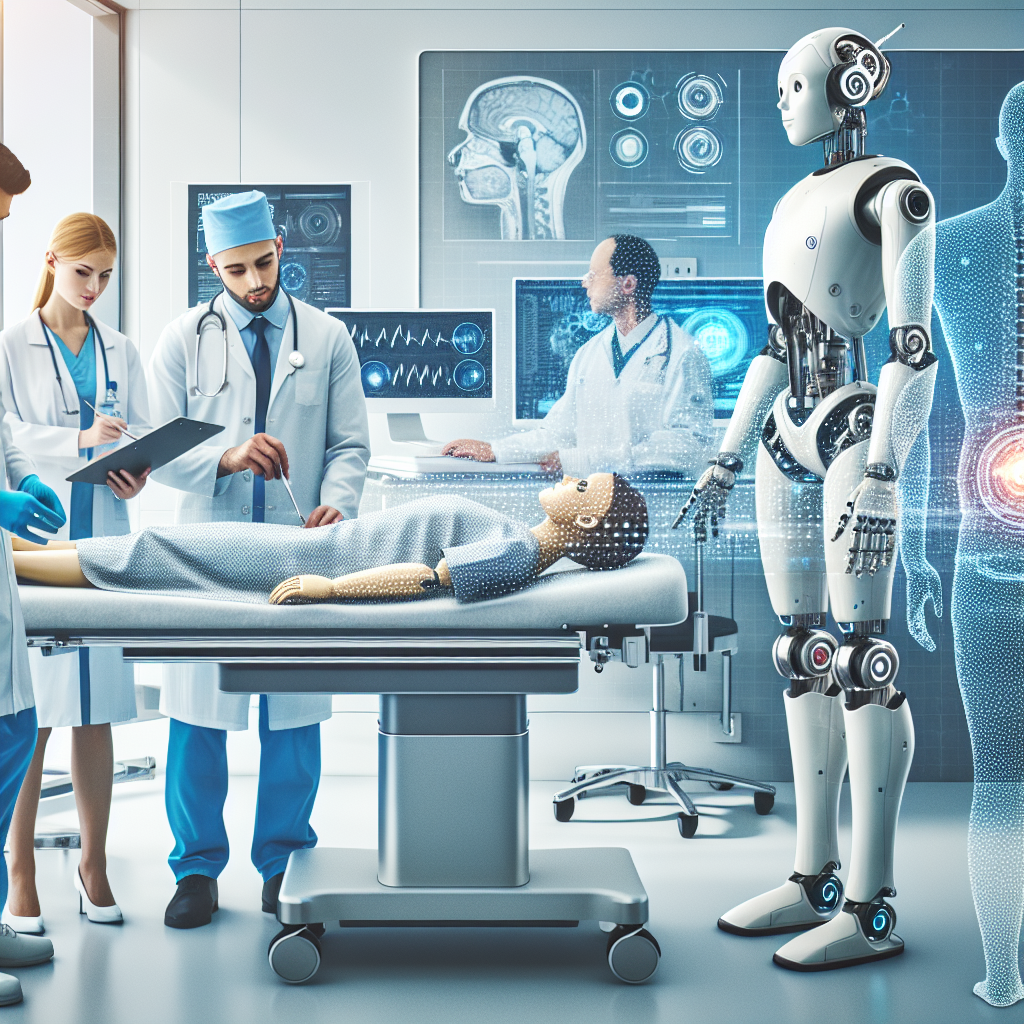Introduction
The integration of artificial intelligence (AI) into the medical field is revolutionizing healthcare delivery, sparking a surge in demand for AI-related roles. This transformation is driven by AI's potential to enhance diagnostics, streamline administrative tasks, and improve patient outcomes. As AI technology evolves, it is reshaping the job market, creating new opportunities and challenges for both job seekers and employers.
Emerging AI Roles in Healthcare
Several specialized positions have emerged at the intersection of AI and healthcare:
- AI Diagnostics Specialists: These professionals develop machine learning algorithms to analyze medical images and patient data, aiding in early disease detection and personalized treatment plans. (Source)
- AI-Powered Patient Coordinators: Utilizing natural language processing, they manage patient interactions, schedule appointments, and provide health information, enhancing patient engagement and satisfaction. (Source)
- AI Healthcare Data Analysts: Experts in data science and machine learning who extract insights from vast healthcare datasets to inform clinical decisions and public health initiatives. (Source)
- AI Healthcare Ethicists: Specialists addressing ethical considerations in AI applications, focusing on bias detection, transparency, and patient data privacy. (Source)
Market Growth and Demand
The AI in healthcare market is experiencing exponential growth. Valued at $14.33 billion in 2023, it is projected to reach $153.61 billion by 2029, growing at a compound annual growth rate (CAGR) of 48.50%. This surge is fueled by a global shortage of healthcare professionals and the increasing integration of AI in medical imaging, diagnostics, and operational workflows. (Source)
Salary Expectations
AI healthcare roles offer competitive salaries reflecting the specialized expertise required:
- Health Data Analysts: Annual salaries range from $70,000 to $110,000. (Source)
- Medical Data Scientists: Salaries can reach up to $150,000, depending on experience and specialization. (Source)
- Healthcare AI Engineers: With strong programming backgrounds, these professionals earn between $100,000 and $150,000 annually. (Source)
Educational Pathways
Pursuing a career in AI-driven healthcare requires a solid educational foundation in both AI technologies and medical sciences. Top institutions offering specialized courses include:
- Stanford University: Offers a program on Artificial Intelligence in Healthcare, providing insights into current and future AI applications in patient care. (Source)
- Harvard University: Provides a course titled Innovation with AI in Health Care, focusing on implementing AI innovations effectively within healthcare organizations. (Source)
- Massachusetts Institute of Technology (MIT): Offers an online program exploring various AI technologies and their applications in healthcare. (Source)
Challenges and Considerations
While AI presents numerous opportunities, it also poses challenges:
- Job Displacement: Automation of tasks like data entry and appointment scheduling may reduce the need for certain administrative roles. (Source)
- Ethical and Privacy Concerns: Ensuring the privacy and security of patient data is crucial, as AI systems rely on large datasets containing sensitive information. (Source)
- Skills Gap: The rapid adoption of AI highlights a skills gap among healthcare professionals, necessitating continuous education and training programs. (Source)
Conclusion
The integration of AI into the medical field is creating a dynamic job market with diverse opportunities. As the industry continues to evolve, professionals equipped with both healthcare knowledge and AI expertise will be at the forefront of this transformation, driving innovations that enhance patient care and operational efficiency.
